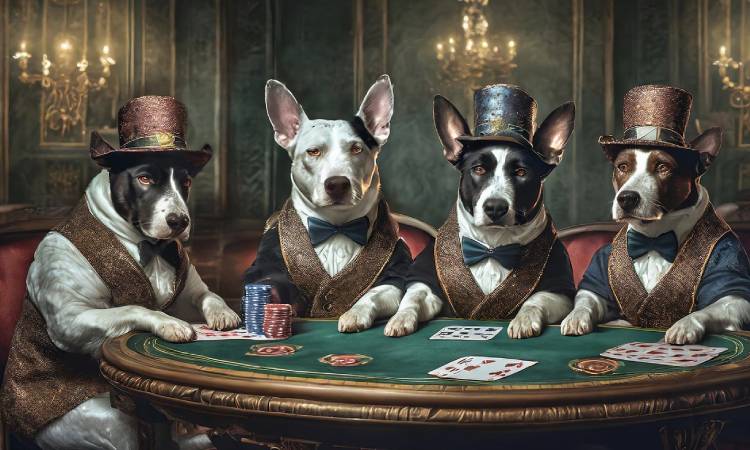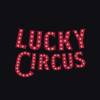Is Bingo Considered Gambling? A Deep Dive into the Classification Across Jurisdictions

Bingo’s a game that’s been around for ages, bringing joy and excitement to many. But there’s a question that’s often asked: is bingo gambling?
While some view it as a harmless pastime, others see it as a form of wagering. It’s a debate that’s been going on for years.
In this article, we’ll delve into the world of bingo, exploring its history, how it’s played, and whether or not it falls under the umbrella of gambling. We’ll also look at the legal aspects and how they vary from region to region. So, let’s dive right in and uncover the truth about bingo.
Key Takeaways
- Bingo, originating in 16th-century Italy, is a globally popular game. Its status as a game of chance or a form of gambling sparks debates and varies depending on country-specific laws and attitudes towards gambling.
- The gameplay involves marking off numbers on a card as they are called out randomly. The first player to mark a specific pattern on their card and yells “Bingo!” wins. The game involves luck and has a strong social aspect.
- Some jurisdictions consider Bingo as a form of gambling, especially when players are required to buy cards with their money. Countries like Australia have classified it under their gambling regulations.
- Some countries, like the UK, exclude Bingo from gambling regulations, especially when it’s used as a fundraising tool for good causes. There is a greater tolerance towards Bingo due to its social nature and the often low-stakes related to it.
- The rise of online Bingo is reshaping the debate around Bingo as gambling. It’s highly accessible and could have the potential for problem gambling thanks to this ubiquity.
- Regulatory responses and legal regulations around Bingo differ significantly across geographies. While most states in the US regard Bingo as a form of regulated or “authorized” gambling, especially for fundraising by non-profit organizations, the UK differentiates between high-stakes and low-stakes Bingo games.
- As online Bingo gains popularity, there is no international consensus yet about classifying it under the umbrella of online gambling. The rules and regulations concerning it vary across countries.
The History of Bingo
Let’s delve into the roots of Bingo- a game older than you might think. Initially known as “beano”, this game originated from Italy in the 16th Century as “Lo Giuoco del Lotto D’Italia”. It was, and still is, a weekly national lottery which is said to have funded the construction of key historical landmarks.
From Italy, the popularity of the game quickly spread across Europe- first to France, then Germany, and eventually the UK by the 18th Century. The French version “Le Lotto” was specifically trendy among the elite and educated, displaying how this simple game could cross social borders. Across the channel, the British added a unique touch by creating a game variant known as “tombola” for their soldiers during World War I, both for entertainment and as a morale booster during tough times.
The game of “beano” crossed the Atlantic, reaching American shores in the early 20th Century. It was at a carnival in Georgia when an excited winner accidentally shouted out “Bingo” instead of “Beano” that the name truly switched. A toy salesman named Edwin S. Lowe overheard this, took the idea, and as they say, the rest is name history.
What about the Bingo cards we are familiar with today? The 5×5 grid that generations have come to recognize were not a universally accepted norm. It was designed and popularised by a Math Professor, Carl Leffler from University of Columbia in the 1930s.
But is this rich history enough to sway the debate? Does Bingo indeed fall under the category of gambling or is it a mere game of chance and amusement? Well, that’s a question each country had to tackle. Stick along as we will explore how different regions reacted and dealt with the legality and moral questions surrounding Bingo.
How Bingo is Played
Bingo involves a lot of luck, with some strategic elements woven in to keep things interesting. Traditionally, tactile bingo cards and markers are used, with numbers randomly laid out in five horizontal rows and five vertical columns. The key objective is to be the first player to mark off a pattern of numbers according to certain rules and yell “Bingo!”
Before the start of each round, the game master announces the pattern that has to be formed on the card. Patterns could be as unique as covering odd or even numbers, forming different shapes or lines, or even the notoriously challenging “blackout,” where every single number on the card has to be covered.
Simultaneously, numbers are drawn, typically at random, and called out by the game master. Upon hearing their numbers, players mark them off their cards. This goes on till a player completes the required pattern and yells “bingo!”
Historically, numbers used to be drawn using numbered balls from a circular cage. In today’s technologically driven age, however, it’s increasingly common to see digital number generation and display, leading to quicker rounds and more games for eager players. Even more exciting is the proliferation of online bingo, where players can join and play from the comfort of their couches.
Given the simple rules and low barriers to entry, bingo has been a hit across age demographics, from children at a school fair to veterans at a community center. Is it gambling, though? That’s still a question up for debate across the globe.
As we delve into the issue, it’s important to note that regulations vary widely. Some countries view bingo as a harmless pastime while others treat it as a form of gambling, subject to all the legal and moral considerations that label entails. In the next section, we’ll be looking at some of the jurisdictions where the game’s legality has come under scrutiny.
Is Bingo Considered Gambling?
The classification of bingo as a form of gambling tends to differ according to local laws and societal attitudes towards gambling in general. In many jurisdictions, bingo is considered gambling, especially when players are required to put up their own money to buy cards.
Comparisons between bingo and more well-known forms of gambling, such as slots or poker, often highlight the shared elements of chance and risk. Although each game of bingo offers the fun reality of unpredictability, it’s important to note the key difference. While other forms of gambling are typically solitary and competitive, bingo also fosters a sense of community with its social aspect, bringing together people from all walks of life to engage in a game of luck and chance.
When we look to international regulations for clarity, the waters become even murkier. Some countries have specific laws that exclude bingo from gambling regulations. These jurisdictions often see bingo as a harmless and fun game that serves as a fundraising tool for good causes, and therefore exempt it from the strict controls placed on other gambling forms. For example, UK law doesn’t classify charity bingo as gambling, as long as all the proceeds are given to a good cause.
On the other hand, certain jurisdictions do consider bingo to be a form of gambling and regulate it accordingly. For example, countries like Australia have included bingo under its Interactive Gambling Act, which governs all kinds of gambling activities in the country.
Finally, it’s also worth considering Online Bingo as an entity. Being a digital version of the game, it is more easily associated with online gambling. The rise in popularity of online bingo puts a whole new spin on the debate, mainly because it increases accessibility and perhaps the potential for problem gambling.
Let’s follow this thread and delve deeper into the topic to unpack the implications of this ever-evolving debate about whether or not bingo is gambling. In the upcoming sections, we will address the social, ethical, and legal factors that come into play.
The Debate Surrounding Bingo
There’s a divide in convictions when it comes to classifying bingo. For a considerable amount of people, and in fact in many legal contexts, bingo is seen as a form of gambling. Legal definitions frequently depend on whether the stake the player places in the game stands a chance to produce a gain. In the case of bingo, players typically buy cards or tickets.
However, others assert and argue that bingo is more a game of entertainment – a social activity, rather than a gambling pastime. It’s true that bingo has a strong social aspect that’s often missing in other forms of gambling. Its communal nature and sense of camaraderie among players, both online and in bingo halls, sets it apart from games like poker or slots.
There is the interesting factor of the rise of online bingo games. This digital evolution can blur the edges. It’s easy, accessible, and can be played anytime, anywhere. It heightens the pleasure of the game, and arguably, might increase the risk of problems associated with gambling due to its sheer accessibility. This is a dimension that has caught the attention of lawmakers and social observers.
Another layer of this debate revolves around how regulatory bodies view bingo. In some countries, bingo has been exempted or modified under gambling legislation. Consider the example of the UK, where laws allow bingo to be advertised more freely compared to other forms of gambling. Contrastingly, other nations regard it squarely within their betting regulations.
All these perspectives keep the classification of bingo as gambling an ongoing, unsolved riddle.
The journey continues, looking deeper into the social, ethical, and legal aspects influencing the classification of bingo.
Legal Aspects of Bingo
In the dynamic landscape of gaming regulation, the legal aspects of bingo deserve some attention. The treatment of bingo differs drastically from one jurisdiction to another which only adds to the complexity of the debate. This range of regulatory responses highlights the challenge of categorically defining bingo.
Let’s consider the situation in the United States. Most states have specific laws addressing charitable gambling. These laws permit non-profit organizations to raise funds by offering games like bingo. Usually, the state imposes certain requirements, such as obtaining a license or limiting the frequency of games. That’s a clear suggestion that such games, including bingo, are a form of gambling. But it’s a kind of “regulated” or “authorised” gambling.
On the other hand, the United Kingdom takes a slightly different approach. They have the Gambling Act of 2005, which clearly classifies bingo as a form of gambling. However, UK legislation doesn’t view all types of bingo the same way. The Gambling Act distinguishes between high-stakes, casino-style gaming and low-stakes leisure games. This categorization places some forms of bingo into a more relaxed regulatory environment, again emphasizing its social nature.
Another important aspect to highlight is the rise of online bingo platforms. The rapid surge in online gaming has left regulators scrambling to update laws to keep pace with technology. While there’s no definitive international consensus on the classification of online bingo, it’s usually treated as online gambling. This means different rules and regulations depending on the country.
No matter where one stands on the “is bingo gambling” debate, it’s clear that the legal landscape is as varied as the game itself. From relaxed rules for charitable functions to stricter regulations for online play, bingo’s legal status is anything but straightforward. Navigating these waters can be tricky, but one thing’s for certain. There’s much more to explore on this issue with no clear-cut responses in sight.
Conclusion
So it’s clear that bingo’s classification as gambling isn’t black and white. Its status varies from one place to another, with the U.S. and U.K. offering different regulatory approaches. The emergence of online bingo only adds another layer to this complexity. It’s a game that’s caught in a legal grey area, and it’s unlikely we’ll see uniformity anytime soon. The question “is bingo gambling?” isn’t easily answered, and perhaps that’s part of its charm. It remains a beloved pastime, regardless of its legal standing.
Q1: Is bingo classified as gambling?
Q2: How is bingo regulated in the United States?
In the U.S., bingo is considered a regulated form of gambling and is typically overseen by gaming commissions.
Q3: What about in the United Kingdom?
In the U.K., bingo is also classified as gambling. However, there are differing regulations for different types of bingo games.
Q4: How has the rise of online bingo platforms affected its legal status?
The emergence of online bingo has complicated its legal landscape. Different countries treat online bingo as a form of online gambling leading to varied regulations and legal statuses.
Q5: Is there a clear-cut legal status for bingo?
The legal status of bingo is complex and varied across different jurisdictions, with no clear-cut consensus or response.
FAQ
-
Q1: Is bingo classified as gambling?
Yes, in most jurisdictions, bingo is classified as a form of gambling. However, the regulations governing it vary widely.
-







